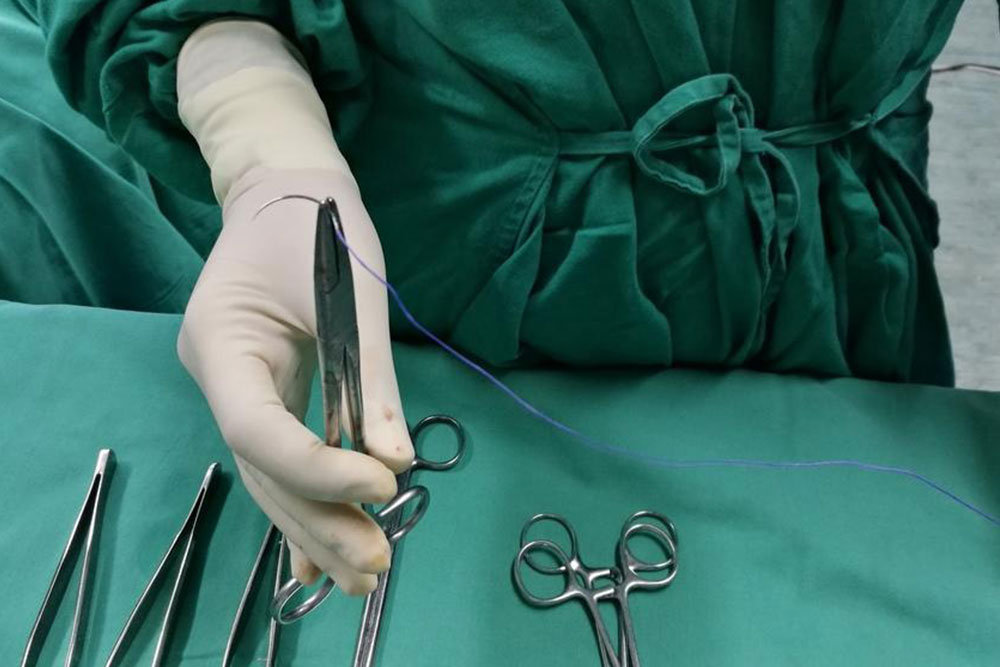Treatment Options for a Hiatal Hernia
A hernia is a condition where an internal body part pushes into an area where it doesn’t belong. The hiatus is an opening in the muscular wall which separates the chest cavity from the abdomen called the diaphragm. It is through the hiatus that the esophagus (food pipe) attaches itself to the stomach. The stomach bulges up into the chest through that opening in a hiatal hernia (also called hiatus hernia).

Following are some treatment options for a hiatal hernia:
- Lifestyle and dietary changes
A hiatal hernia occurs most commonly in people who are overweight or obese. Losing weight relieves the abdominal pressure that promotes herniation. Even though this won’t necessarily reverse a hernia, it may prevent a mild hernia from developing into a grave paraesophageal hernia. Consuming a low-fat and high fiber diet helps normalize bowel function and relieves constipation that contributes to herniation. Eating high-fiber foods is the most effective treatment for a hiatal hernia. Proper hydration can further reduce the risk of constipation and dilute the concentration of acid in the stomach. So, one must ensure that they drink at least eight glasses of water per day. Whatever your age may be, you should avoid trigger foods like red meat, fried foods, spicy foods, whole-fat dairy products, tomato-based sauces, citric foods, carbonated drinks, caffeine, alcohol, and excessive salt. Including foods such as lean chicken, fish, low-fat dairy, grains, and vegetables can help treat the reflux symptoms. Quit smoking if you are undergoing treatment for a hernia and struggling with heartburn. Even though smoking does not have a direct link to a hiatal hernia, it can relax an already weakened lower esophageal sphincter, and thus, allow food as well as acids to reflux more easily. - Medications
OTC medications are the first line of defense for treating a hiatal hernia. These address the root cause, the reflux itself, and hence can be helpful in reducing the symptoms of this condition. However, these are safe only for intermittent use as it may cause problems if used excessively.
Some of the more commonly used medications for treatment of a hiatal hernia are antacids, H2 receptor blockers, and proton pump inhibitors (PPIs). However, overuse can lead to diarrhea and constipation. H2 receptor blockers reduce the production of stomach acids. Constipation, diarrhea, dry mouth, headaches, and ringing in the ears are its side effects. Proton pump inhibitors have a similar action to H2 blockers but are faster and stronger. They are recommended only if an H2 blocker fails to provide relief. Headaches, constipation, diarrhea, and flatulence are the common side effects of PPIs. You can get stronger versions of H2 blockers and PPIs with a doctor’s prescription. - Surgeries
The need for surgery depends on the nature and severity of the complication. Only when a paraesophageal hernia causes symptoms that are not getting better with medications or lifestyle changes, will a doctor recommend surgery. It is far better to treat it as early as possible because a paraesophageal hernia tends to be progressive. Open surgery is most commonly used in emergency situations where there is severe bleeding or an organ rupture. For non-emergency situations, laparoscopic surgery is better because of its limited complications and quicker recovery time. - Complementary medicine (CAM)
Numerous complementary therapies are used for treating a hiatal hernia. Even though there hasn’t been much research on their effectiveness, some studies have suggested that licorice can be used as an acid-blocking medication. Licorice tea and deglycyrrhizinated licorice (DGL) which is available as a nutritional supplement can be used for treating a hiatal hernia and reducing its symptoms. Ginger is another popular option for overcoming symptoms such as heartburn. However, ginger may have an adverse reaction if used excessively. One can consume ginger as a tea or in powder, capsule, or liquid formulations.
Consult a doctor and get an accurate diagnosis if you start to exhibit the symptoms of a hernia. In most cases, a hernia can be treated with medications, lifestyle and dietary changes. To get relief in severe cases, one may require surgery. A doctor may also recommend surgery if the herniation is causing an obstruction or cutting off the blood supply. A surgeon may perform open or laparoscopic surgery to repair the damage.




